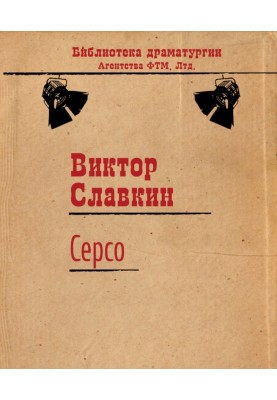Serso
 Instant download
Instant download
after payment (24/7)
 Wide range of formats
Wide range of formats
(for all gadgets)
 Full book
Full book
(including for Apple and Android)
There were still almost 10 years left before the abrupt change of eras, but in the stagnant air of the 80s, playwrights of the late Soviet period were already capturing the changing moods, trying to express their generation. Viktor Slavkin’s play “Serso” has rightfully become a legendary text of a bygone era, immortalizing the “internal emigrants” of the Soviet period, descendants of Chekhov’s klutzes, people disappointed in themselves and in the country, humbly living in the time in which they had to live. “Serso” has and another name that has become a catchphrase: “I’m 40 years old, but I look young”: a group of 40-year-old people who know each other to varying degrees comes to a country house for the weekend. What unites them all is the owner of the house, or rather, who unexpectedly received this property as an inheritance from his great-aunt, Cockerel, as 40-year-old Peter’s friends lovingly call him. Having huddled almost all his life in the same room with his mother (as his friends state, “he has a housing complex”), Cockerel experiences euphoria and calls on the assembled singles (all heroes are also united by the fact that they have no family) to stay and live here forever, renouncing from the bustle of the world and by forming a squat of happy colonists. None of them has any illusions, realizing that this idea is utopian, but for the weekend they agree to accept the terms of the game. In its form, the play is very theatrical and contains three time layers: in addition to the present time - the 80s itself - there is also a reference to Paul I (Pasha, a historian by education and an enterprising repair worker by life, mystifies the furniture in the house, hinting that it was in the emperor’s bedroom on the night of the murder); as well as the 20s of the 20th century - correspondence between a grandmother and her lover found in the house inspires the colonists to read letters out loud in costume. Then they lived and loved differently: in imitation of that time, the leisurely play of the characters in Serso enhances the elegiac Chekhovian drama of the play. Which does not cancel its social message: in any historical reality, the ideal is not achievable. According to Hamburg, “Serso” was staged once: in 1985, the most powerful of the directors who is still working today, Anatoly Vasiliev, came up with an original and expressive artistic solution, laconically placing actors into the frame of a wooden house, blown from all sides, and seating the audience in a circle, so that everyone could see what was happening from their own unique perspective. Exquisite circling of hands with the passing of letters in a circle, red glasses and white envelopes - condensing the space to the limit, the director created a performance of amazing beauty and atmosphere, which set a high bar for directors of subsequent generations. But the presence of an ideal performance should not frighten, but challenge contemporaries, because the theme of loneliness in “Serso” does not become outdated and resonates in its own way with any time.
Data sheet
- Name of the Author
- Виктор Славкин Иосифович
- Language
- Russian














